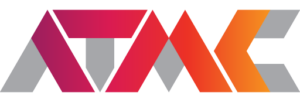There’s no better way to undertake interview preparation and to overcome nerves than by practicing interview questions. If you are applying for some of the larger, more famous companies, then you will likely be able to search online and find sample questions that candidates are often asked.
If not, find questions from similar companies in your industry and get friends or relatives to test you on them. There are also some great apps to help with your job search and interview practice.
The interviewer will want to see clarity in your answers, as well as a creative and passionate flair for finding unique solutions, so don’t stick to standard answers but, instead, offer insightful and detailed answers.
Here are some tips explaining how to answer commonly asked questions:
“Tell me about yourself / your background”
- This question helps you ease into the interview as it gives you the control.
- Your answer much be relevant to the job you are applying for.
- Avoid long-winded answers and going on tangents.
- Cover your education, experience and interest in the industry
- It’s not your life-story – it should take around 2-3 minutes
- Begin with a strong sentence, for example, “I am the head of a school’s science department with 10 years of experience of teaching people from ages 5-83 from varying walks of life.”
“What are your limitations / weaknesses?”
- Be honest – everyone has weaknesses.
- Tell the interviewer your weakness, without using negative language, and explain how you’re trying to address it – essentially you want to explain how this weakness will be a strength in the near future.
- For example, “In the past I found it difficult to work simultaneously on different tasks, preferring to finish one task before starting another. However, I’ve recently attended a time-management course where I’ve learnt how to plan ahead and manage my time and scheduling more effectively. This has made it easier to work on different projects at the same time and it’s a skill that I’ll keep practicing and developing.”
“Why should you get this job?”
- The interviewer wants you to persuade them why you’re the best choice.
- You need to show them why you want the job and why you’re valuable.
- g. “From what we’ve spoken about, you want to X/ resolve X. In this past I have shown that I am…. (your experience and your skills).
“Why did your apply for this job?” / “Why do you want this job?”
- Concentrate on why the organisation and job enthuse you.
- This is a good place to reveal your knowledge about the organisation and mention points from the job description that make you suited for the role.
- g. “I want this customer assistant job at X shop because I know I would be great at it. I enjoy engaging with people and helping them to the best of my ability. I have worked as a customer assistant for the last three years in other shops so I have a lot of experience of handling money and working with different cash register systems. I’m especially excited about working at X shop since I buy most of my clothes from here so I’m keen to use all of my skills in a place that I support.”
“Where do you see yourself in five years?”
- By asking this question, the interview is checking to see whether you’re ambitious, motivated and that you genuinely want this job.
- This answers needs to be tailored to the company and role you’re applying for, for example, for an entry level position explain how you want your career to develop, for example, “I see myself being a digital assistant…” For a senior position explain how you want to help the organisation achieve its company’s objectives and explain how you can assist in fulfilling these goals.
- Essentially: be enthusiastic about the industry and fit your own aims around the company’s objectives.
“Why is there a gap in your work history?”
- Be honest – if it was due to personal reasons then state this. Otherwise, you can say that “I was taking timeout whilst searching for a new career direction”. Avoid being defensive.
- You may also be asked why you left a previous job, if you’re struggling to find an “appropriate reason” you can say that there were no/limited opportunities for career progression.
Other common interview questions include:
- Why are you interested in this industry?
- What makes you think you are the right fit for us?
- Where do you see yourself in 5 years?
- What are your biggest weaknesses?
- Why have you not yet found a role?
- Why do you appear to be doing a lot of job hopping?
- What are you learning in your spare time?
- How do you deal with stress?
- Tell me about a time when you dealt with ambiguity?
- What salary are you seeking?
- What makes you a good team player?
Competency-based questions
Most questions in an interview are competency-based and you simply answer them based on your previous experiences. The interviewers are trying to see the compatibility with the position you’re applying for. It’s easy to distinguish these questions as they generally start like this:
- Tell me about a time when you…
- Do you have an example of when you/how you…
Some key competencies:
- Teamwork
- Decision making
- Responsibility
- Communication skills
- Adaptability
- Negotiation
- Motivation
- Leadership
- Ability to work under pressure
- Problem-solving
- Initiative
- Organisation
- Goal orientation
To prepare for competency-based questions:
- Look at all of the competencies in the job specification.
- Think of examples of how you meet these.
- Think of a variety of examples you can use, for example, you may talk about experiences from daily life, previous work, at your current job, in sports etc.
- Use the STAR technique to create an answer.
The STAR model:
The STAR model is a way of forming an answer that helps you meet the requirements of a competency-based question. It’s a two-minute answer which shows your skills and how they’ve been helpful in previous experiences.
- Situation – What was the context? What was happening at the time?
- Task – What did you want to achieve? What were your aims? Was there a specific problem?
- Action – How did you deal with it? What actions did you take?
- Result – What was the outcome? How has this helped in the long-term?
For example: “Do you have an example of when you have problem-solved at work”
- Situation: “At the surgery I currently work at, a patient rang up complaining that no one had replied to her email requesting an appointment which she sent two weeks ago”
- Task: “I had to figure out what had happened so I could provide her with an explanation and also resolve the situation so the patient could get their appointment.”
- Activity: “I apologised and asked for the email’s details to help locate it. I couldn’t find it so I asked the patient what email address they had sent it to. I realised she had sent it to the surgery’s previous email address – this was changed one year ago. I explained this to the patient and reassured her that it was an easy mistake to make. I provided her with the new email address for the future and booked in her appointment in the earliest available slot.”
- Result: “The client apologised for being initially hostile and thanked me. Due to this experience we have emphasised the change to our new email address on our website to make it more obvious and we are also advertising this change in the surgery as well.”
Questions for the interviewer
You shouldn’t spend the whole time answering questions – you should prepare 2 or 3 of your own to ask the interviewer as most interviewers will ask if you have any questions.
Your questions should be specific, not generic, to show that you’re genuinely enthusiastic about the job and that you have thought about the role and company. For example, you could ask about the company culture or the challenges previous employees in your potential role have faced.
Other potential questions:
- Is this a new role or an existing one? What did the previous employee go on to do?
- Does the company offer any training schemes?
- What would you describe as a typical day in this role?
- What are the company’s plans for the future/growth and development?
- How do you advance in this company?
- What are the biggest rewards of this role and working for this company?
- What are the biggest challenges of this role?
- Who does this position report to?
- How many people work in this team/office/department?
- What is the best thing about working here?
- What is the management style here?
- I saw that you’ve recently done X. Can you please tell me more about this?
- What are the career progression opportunities?
- When can I expect to hear from you? This is a natural way of ending the interview.
There are certain questions you shouldn’t ask, here are some of them:
- Avoid questions about your salary or any benefits, such as, your annual leave and sick days. By asking, it sounds like you’re assuming the position is yours – only ask when you find out you’ve got the job.
- Avoid yes or no questions because you want to continue building rapport and not prevent a potential conversation.
- By asking “What does your company do?” it looks like you haven’t put any effort into preparing for the interview and you’re not bothered about this job.
- Don’t confuse the interviewers by asking them multiple questions at once – ask one question at a time
- This isn’t a question but it’s very important: don’t ever criticise your previous or current employer, for example, “That’s good to hear that the manager is so supportive, my current manager isn’t like that – they’re hard work…” The interviewers probably don’t know your current employer so they can’t support this opinion, you’ll just look untrustworthy and potentially incapable.
Ask questions covering a variety of topics or the interviewers may think that you’re bothered by a specific topic. For example, you may ask a few questions about promotion and development which may lead them to believe that you don’t want to stay in the position for long.




